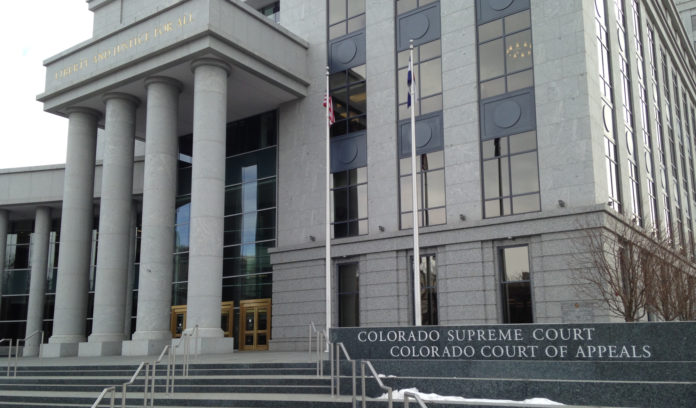
The Colorado Supreme Court on Monday agreed to hear a case involving the interplay between separate Colorado Rules of Civil Procedure and deadlines to challenge decisions by government agencies. Local and state agencies say the high court should overturn a 2021 Colorado Court of Appeals decision to avoid expensive and time-consuming litigation and provide certainty when it comes to government decision making.
Marshall Brown, director of Aurora Water, says the Court of Appeals departed from decades of precedent last year when it allowed a challenge to one of his decisions to proceed, even though it was filed past the deadline. The City of Aurora imposed a drainage basin development fee on the property of Walker Commercial, Inc., a real estate and construction company based in Lone Tree. Walker petitioned for an administrative hearing before Brown, who upheld the fee.
Thirty days after Brown’s decision, Walker filed a complaint under C.R.C.P. 106(a)(4), which allows for review of whether a judicial or quasi-judicial body exceeded its jurisdiction or abused its discretion. However, Rule 106(a)(4) complaints have a 28-day filing deadline, and Brown moved to dismiss because the complaint was untimely.
Walker later amended its complaint, asserting additional claims seeking a declaration that Brown’s decision was not effective and an order compelling him not to enforce it. Brown moved to dismiss the amended complaint. Walker responded by filing a C.R.C.P. 6(b)(2) motion for more time to file the original complaint, arguing it was filed late due to excusable neglect.
The trial court dismissed Walker’s claims, finding the complaint was untimely and that Rule 6(b), which allows for time extensions under certain circumstances, doesn’t apply to Rule 106. Even if it did, the court said, Walker failed to show excusable neglect.
The Court of Appeals reversed, finding in a matter of first impression that Rule 6(b) allows a trial court to accept an untimely Rule 106(a)(4) complaint if the filing party can establish excusable neglect. The appellate court also found it was unable to determine why Walker’s claim seeking the declaration and order against enforcement was dismissed and asked the trial court to give a reason on remand.
Brown asked the Supreme Court to take the case to clarify whether Rule 6(b) authorizes a trial court to toll or waive the deadline for a Rule 106(a)(4) complaint. Brown maintains that it doesn’t. “For decades, the Supreme Court has consistently held a failure to timely file a C.R.C.P. 106(a)(4) complaint is a jurisdictional defect that requires dismissal of the complaint,” Brown stated in his petition for certiorari, adding that the deadline under Rule 106 “must be construed as a statute of limitations.”
The rules of civil procedure and filing deadline details are dry enough to make even the biggest legal geek’s eyes glaze over, but Brown and several amici curiae say the case has major implications for government agencies throughout the state. “Every governmental body in the State is impacted by this decision because all government bodies in the State routinely render ‘quasi-judicial’ decisions,” Brown wrote in his petition for certiorari, and Rule 106(a)(4) applies to “a broad range” of quasi-judicial actions by state and local agencies. If the deadline for Rule 106(a)(4) complaints can be waived or extended, “there no longer is any firm certainty as to when a quasi-judicial decision is deemed beyond challenge,” Brown wrote, and government bodies may face challenges to their decisions long after those decisions have been made.
In an amicus brief asking the high court to hear the case, several state agencies — including the departments of corrections, education and revenue — said the Court of Appeals’ decision “introduces an open-ended review process whereby a litigant can, at any time, seek to prove excusable neglect” for their untimely filing and requires district courts to consider the merits of a plaintiff’s position. This could force agencies to participate in expensive and time-consuming evidentiary hearings for which they and the judicial branch have not budgeted, states the brief filed by the Colorado Attorney General’s Office.
The Colorado Municipal League also urged the Supreme Court to take the case. In an amicus brief, the CML argued the Court of Appeals’ decision to “side-step” the strict jurisdictional deadline is inconsistent with precedent and “will disrupt the efficient running of municipal government,” which requires finality in decisions on land use and zoning, business taxes, medical marijuana licensing, water discharge permits and other matters.

